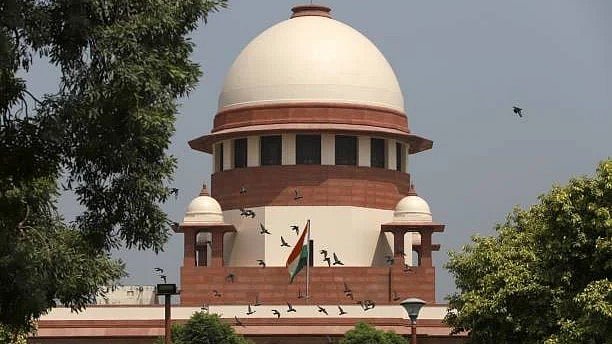
Supreme Court
Credit: iStock Photo
New Delhi: The Supreme Court has acquitted a medical practitioner in a case of killing his assailant by snatching the pistol, in an acknowledgement of his act as the right of private defence.
A bench of Justices M M Sundresh and N Kotiswar Singh said the right of private defence cannot be weighed in a golden scale and the approach of the court should not be pedantic in such cases as it should be seen from the point of view of a common and reasonable person.
The court allowed the appeal filed by Rakesh Dutt Sharma against the Uttarakhand High Court's judgment, which confirmed the trial court's decision, holding him guilty of culpable homicide not amounting to murder and awarding him life term.
Accept the plea of private defence by the appellant, the court noted the principle governing the right of private defence as mentioned in Darshan Singh Vs State of Punjab and Another, (2010), which stated that a person, who is in imminent and reasonable danger of losing his life or limb may in exercise of self defence inflict any harm even extending to death on his assailant either when the assault is attempted or directly threatened.
The appellant was a medical practitioner. There was an enmity between him and the deceased over a money transaction.
On the fateful date, the deceased, armed with a pistol, went to the appellant's clinic and shot him. Thereafter, the appellant snatched the pistol from the deceased and shot him down. Both the appellant and the deceased registered FIRs against each other. The FIR registered against the deceased was closed due to his death and the appellant was charged for the offence.
Considering his appeal, the bench said, "When an attack is sought to be made on the accused-appellant by a person, who goes to the place of the accused, armed with a pistol and thereafter, shoots him on his head causing injury, there is no way the accused person would apply his rational mind in exercising his right of private defence,'' the bench said.
Setting aside the judgments of the High Court and the trial court, the bench noted the deceased was the aggressor, as he was the one who went to the clinic of the appellant, armed with a pistol and attacked him. The appellant attacked the deceased in retaliation, the court added.
